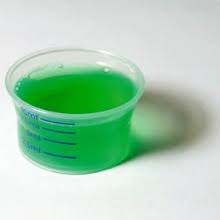Important Guidelines for Methadone Treatment
First developed in the 1960s, methadone treatment offers an effective approach for treating opiate addictions. Methadone treatment addresses both the physical and psychological components of addiction by combining medication therapy with psychosocial supports.
Methadone’s classification as a controlled substance requires certain guidelines be followed by physicians and patients alike. Dosage procedures, individual treatment needs and treatment duration protocols all factor into methadone’s effectiveness. As opiate addictions tend to leave a lasting mark on those affected, methadone treatment providers also consider the probability of relapse as part of the overall recovery process.
Methadone Treatment Effects
Opiate drugs naturally stimulate specific cell receptors in the brain. Once activated, these receptors emit large amounts of neurotransmitter chemicals. Methadone, a synthetic opiate drug, affects the same brain cell receptor sites but in a different way, according to the Centers for Disease Control & Prevention.
Rather than produce the euphoric effects of abusive opiates, methadone treatment has a slow-acting effect that fulfills the brain’s need for opiates without creating euphoric, addictive effects. In the process, methadone provides relief from the distressing withdrawal and cravings effects recovering addicts often experience.
Dosage Guidelines

It is important to follow the treatment guidelines for methadone in order for treatment to be effective.
Dosage guidelines for methadone work to ensure a person receives the correct dosage amount, which ultimately determines methadone’s effectiveness as a treatment drug. Too large a dosage level can produce feelings of euphoria and sedation, much like addictive opiates do. Too small a dosage level leaves recovering addicts susceptible to withdrawal and cravings effects.
On average, 60 to 120 milligrams of methadone per day produces the desired therapeutic effect. People coming off years of opiate addiction may require higher doses as brain cell sites have grown accustomed to high levels of opiates from past use.
Co-Occurring Conditions
The widespread chemical imbalances brought on by long-term opiate addiction often causes psychological disorders, such as anxiety and depression to develop. People affected by psychological problems may well require other forms of medication treatment to help relieve symptoms arising from these conditions. When this is the case, methadone dosage levels will likely require special attention as other types of medications can interfere with methadone treatment effects.
Treatment Duration
The length of time a person remains on methadone depends on how long withdrawal and cravings effects persist. Once recovering addicts feel they can deal with these effects on their own, methadone doses can be tapered down over time.
While methadone may work better for some people than others, the longer a person remains in treatment the better the chances of a successful recovery. A minimum of one year in methadone treatment is recommended, though some people may require several years on methadone before withdrawal and cravings effects subside.
Relapse Potential
The damage from long-term opiate can leave brain functions in a debilitated state for months or years after a person stops using. For this reason, it’s not uncommon for recovering addicts to experience relapse episodes, even during the course of methadone treatment.
Rather than disqualify a person from further treatment, methadone programs will resume treatment after a relapse episode occurs. Under these circumstances, frequent dosage adjustments and close ongoing monitoring may well be warranted.